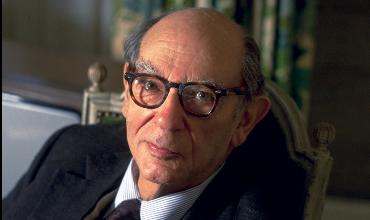Isaiah Berlin. A Value Pluralist and Humanist View of Human Nature and the Meaning of Life.
By: Connie Aarsbergen-Ligtvoet
Uitgever: Rodopi, Amsterdam, ISBN 90-420-1929-8

Amsterdam, Faculty of Philosophy and Theology

This study describes and analyses Isaiah Berlin’s view of human nature. Berlin’s value pluralism is approached from a philosophical-anthropological angle, comparing its (anthropological, social, moral, epistemological and ontological) starting points with contemporary conventionalist and postmodernist positions.
The main thread running through this study is to show how Berlin’s value pluralism differs from (postmodern) relativism. It closely follows Berlin’s struggle between his (humanist) commitment to protect universal values on the one hand and his (pluralist) respect for context-bound values on the other. Through the philosophies of Kant, Vico and Herder, Berlin claims that despite all the moral and cultural variety on earth, human beings are able to understand each other. He develops, independently of post-war continental hermeneutics (Gadamer, Heidegger), but inspired by Vico and Herder, his own method for historiography and (historical) hermeneutics. Berlin also claims that human beings share a basic morality, invoking the natural law tradition and the philosopha perennis.
Berlin recognises within human nature a deep need to belong to a community and to be recognised. He departs from the (classical liberal) view of the social aspects of human nature and adopts a less atomistic view. He rejects cosmopolitan tendencies and is critical of government requirements of assimilation and integration. Berlin’s Zionism is based on the idea that minorities, if they are to form a proper identity, need a homeland that they can choose to return to. His Zionism, however, is in tension with his value pluralism.
This study suggests profound insights into the anthropological assumptions behind value pluralism and the ‘agonistic’ liberalism it leads to (according to John Gray). Berlin prefers political liberalism in a world that is characterised by value conflicts, moral and cultural diversity and the absence of a universally valid measuring rod. Yet Berlin cannot claim that liberty should always have the highest priority, as his value pluralism teaches him that liberty is a value that has to compete with other values. Through analysis of his view of human nature and his rejection of radical relativism, we can see that Berlin’s value pluralism and liberalism turns out to be more compatible than John Gray claims.
In this study, Berlin’s value pluralism is treated as a secular world-view that is part of the humanist and liberal family. As a world-view it contains a specific view of human nature, an analysis of the human condition and a ‘soteriology’ to improve life on earth. Berlin believes that, through philosophy and the history of ideas, ‘wrong’ ideas and ideologies can be traced, analysed and altered. In this way most of the misery and evil on earth that is caused by human beings can be prevented. In comparison with other religions and world-views, Berlin’s view of human nature turns out to be quite positive. Even after Auschwitz, Berlin denies innate and radical evil in human nature, by contrast with Christian and Conservative positions. He assumes a basic willingness to resolve value conflicts in a decent way, and the ability to live in an open, pluralist and liberal society.
Last but not least, Berlin’s value pluralism contains a profound ideological critique that was originally aimed at the classless socialist Welfare States, but is also relevant to today’s Islamist aspirations to establish theocracies. Berlin gives a profound explanation of why dreams of establishing heavens on earth so often lead to the contrary, namely hells where people are oppressed and dissidents and heretics are persecuted, tortured and killed.
Click here for:
Aims and methods of this study
Website: The Isaiah Berlin Virtual Library
Click here for the full Dissertation.
